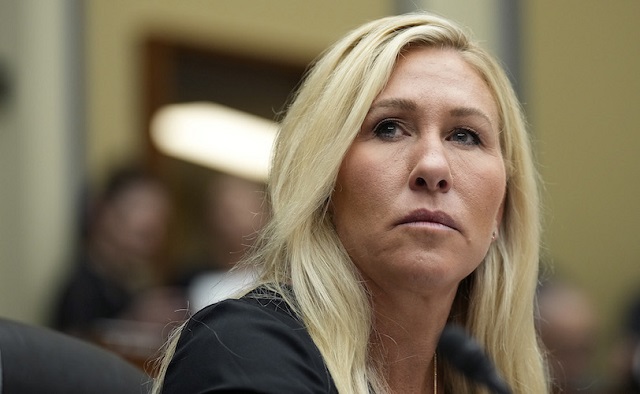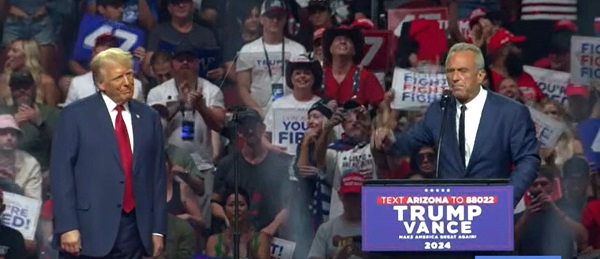Uncategorized
Trump says ‘no reason’ for him to hear Khashoggi death tape

WASHINGTON — President Donald Trump said there is no reason for him to listen to a recording of the “very violent, very vicious” killing of Saudi journalist Jamal Khashoggi, which has put him in a diplomatic bind: how to admonish Riyadh for the slaying yet maintain strong ties with a close ally.
Trump, in an interview that aired Sunday, made clear that the audio recording, supplied by the Turkish government, would not affect his response to the Oct. 2 killing of Khashoggi, a columnist for The Washington Post who had been critical of the Saudi royal family.
“It’s a suffering tape, it’s a terrible tape. I’ve been fully briefed on it, there’s no reason for me to hear it,” Trump said in the interview with “Fox News Sunday.” ”I know everything that went on in the tape without having to hear it.”
On Saturday, Trump said his administration will “be having a very full report over the next two days, probably Monday or Tuesday.” He said the report will include “who did it.” It was unclear if the report would be made public.
American intelligence agencies have concluded that the crown prince ordered the killing in the Saudi Consulate in Turkey, according to a U.S. official familiar with the assessment. The official was not authorized to discuss the matter publicly and spoke on the condition of anonymity. Others familiar with the case caution that while it’s likely the crown prince was involved in the death, there continue to be questions about what role he played.
Trump noted to “Fox News Sunday” that the crown prince has repeatedly denied being involved in the killing inside the Saudi Consulate in Istanbul.
“Will anybody really know?” Trump asked. “At the same time, we do have an ally, and I want to stick with an ally that in many ways has been very good.”
A Republican member of the Senate intelligence committee said that so far, there is no “smoking gun” linking the crown prince to the killing. Sen. Roy Blunt of Missouri, who has received a confidential intelligence briefing on the matter, told ABC that “it’s hard to imagine” that the crown prince didn’t know about the killing, but he said, “I don’t know that we absolutely know that yet.”
He said that Congress will await the Trump administration’s report in the next two days and that the U.S. will need to be clear about the ramifications of sanctions, given Saudi Arabia’s strategic role in the Middle East.
For his part, Sen. Lindsey Graham, a Trump ally, said the crown prince has been a “wrecking ball” in the relationship between the U.S. and Saudi Arabia.
“I hate to say that because I had a lot of hope for him being the reformer that Saudi Arabia needs, but that ship has sailed as far as Lindsey Graham’s concerned,” the South Carolina Republican told NBC’s “Meet the Press.”
“I have no intention of working with him ever again,” said Graham, who is in line to be the next chairman of the Senate Judiciary Committee.
Intelligence officials have been providing information to Trump for weeks about the death, and he was briefed again by phone Saturday by CIA Director Gina Haspel and Secretary of State Mike Pompeo as he flew to California. White House press secretary Sarah Huckabee Sanders provided no details of his call but said the president has confidence in the CIA.
“The United States government is determined to hold all those responsible for the killing of Jamal Khashoggi accountable,” the State Department said in a statement. “Recent reports indicating that the U.S. government has made a final conclusion are inaccurate. There remain numerous unanswered questions with respect to the murder of Mr. Khashoggi.”
The statement added: “The U.S. government has taken decisive measures against the individuals responsible, including visa and sanctions actions. We will continue to explore additional measures to hold those accountable who planned, led and were connected to the murder. And, we will do that while maintaining the important strategic relationship between the United States and Saudi Arabia.”
Before his call on Air Force One, Trump told reporters that when it came to the crown prince, “as of this moment we were told that he did not play a role. We’re going to have to find out what they have to say.” That echoed remarks by national security adviser John Bolton, who said earlier this week that people who have listened to an audio recording of the killing do not think it implicates the crown prince.
Germany’s foreign minister on Monday said Berlin had banned 18 Saudi nationals from entering Europe’s border-free Schengen zone because they are believed to be connected to Khashoggi’s killing. Heiko Maas told reporters in Brussels on Monday that Germany issued the ban for the 26-nation zone in close
Trump has called the killing a botched operation that was carried out very poorly and has said “the
But he has resisted calls to cut off arms sales to the kingdom and has been reluctant to antagonize the Saudi rulers. Trump considers the Saudis vital allies in his Mideast agenda.
But members of Congress are pushing Trump for a tougher response to the killing. The administration this past week penalized 17 Saudi officials for their alleged role in the killing, but American lawmakers have called on the administration to curtail arms sales to Saudi Arabia or take other harsher punitive measures.
Turkish and Saudi authorities say Khashoggi, a Saudi who lived in the United States, was killed inside the consulate by a team from the kingdom after he went there to get marriage documents.
Deb Riechmann And Jonathan Lemire, The Associated Press
Uncategorized
Cost of bureaucracy balloons 80 per cent in 10 years: Public Accounts

The cost of the bureaucracy increased by $6 billion last year, according to newly released numbers in Public Accounts disclosures. The Canadian Taxpayers Federation is calling on Prime Minister Mark Carney to immediately shrink the bureaucracy.
“The Public Accounts show the cost of the federal bureaucracy is out of control,” said Franco Terrazzano, CTF Federal Director. “Tinkering around the edges won’t cut it, Carney needs to take urgent action to shrink the bloated federal bureaucracy.”
The federal bureaucracy cost taxpayers $71.4 billion in 2024-25, according to the Public Accounts. The cost of the federal bureaucracy increased by $6 billion, or more than nine per cent, over the last year.
The federal bureaucracy cost taxpayers $39.6 billion in 2015-16, according to the Public Accounts. That means the cost of the federal bureaucracy increased 80 per cent over the last 10 years. The government added 99,000 extra bureaucrats between 2015-16 and 2024-25.
Half of Canadians say federal services have gotten worse since 2016, despite the massive increase in the federal bureaucracy, according to a Leger poll.
Not only has the size of the bureaucracy increased, the cost of consultants, contractors and outsourcing has increased as well. The government spent $23.1 billion on “professional and special services” last year, according to the Public Accounts. That’s an 11 per cent increase over the previous year. The government’s spending on professional and special services more than doubled since 2015-16.
“Taxpayers should not be paying way more for in-house government bureaucrats and way more for outside help,” Terrazzano said. “Mere promises to find minor savings in the federal bureaucracy won’t fix Canada’s finances.
“Taxpayers need Carney to take urgent action and significantly cut the number of bureaucrats now.”
Table: Cost of bureaucracy and professional and special services, Public Accounts
| Year | Bureaucracy | Professional and special services |
|
$71,369,677,000 |
$23,145,218,000 |
|
|
$65,326,643,000 |
$20,771,477,000 |
|
|
$56,467,851,000 |
$18,591,373,000 |
|
|
$60,676,243,000 |
$17,511,078,000 |
|
|
$52,984,272,000 |
$14,720,455,000 |
|
|
$46,349,166,000 |
$13,334,341,000 |
|
|
$46,131,628,000 |
$12,940,395,000 |
|
|
$45,262,821,000 |
$12,950,619,000 |
|
|
$38,909,594,000 |
$11,910,257,000 |
|
|
$39,616,656,000 |
$11,082,974,000 |
Uncategorized
Trump Admin Establishing Council To Make Buildings Beautiful Again


From the Daily Caller News Foundation
By Jason Hopkins
The Trump administration is creating a first-of-its-kind task force aimed at ushering in a new “Golden Age” of beautiful infrastructure across the U.S.
The Department of Transportation (DOT) will announce the establishment of the Beautifying Transportation Infrastructure Council (BTIC) on Thursday, the Daily Caller News Foundation exclusively learned. The BTIC seeks to advise Transportation Secretary Sean Duffy on design and policy ideas for key infrastructure projects, including highways, bridges and transit hubs.
“What happened to our country’s proud tradition of building great, big, beautiful things?” Duffy said in a statement shared with the DCNF. “It’s time the design for America’s latest infrastructure projects reflects our nation’s strength, pride, and promise.”
“We’re engaging the best and brightest minds in architectural design and engineering to make beautiful structures that move you and bring about a new Golden Age of Transportation,” Duffy continued.
Mini scoop – here is the DOT’s rollout of its Beautifying Transportation Infrastructure Council, which will be tasked with making our buildings beautiful again. pic.twitter.com/
9iV2xSxdJM — Jason Hopkins (@jasonhopkinsdc) October 23, 2025
The DOT is encouraging nominations of the country’s best architects, urban planners, artists and others to serve on the council, according to the department. While ensuring that efficiency and safety remain a top priority, the BTIC will provide guidance on projects that “enhance” public areas and develop aesthetic performance metrics.
The new council aligns with an executive order signed by President Donald Trump in August 2025 regarding infrastructure. The “Making Federal Architecture Beautiful Again” order calls for federal public buildings in the country to “respect regional architectural heritage” and aims to prevent federal construction projects from using modernist and brutalist architecture styles, instead returning to a classical style.
“The Founders, in line with great societies before them, attached great importance to Federal civic architecture,” Trump’s order stated. “They wanted America’s public buildings to inspire the American people and encourage civic virtue.”
“President George Washington and Secretary of State Thomas Jefferson consciously modeled the most important buildings in Washington, D.C., on the classical architecture of ancient Athens and Rome,” the order continued. “Because of their proven ability to meet these requirements, classical and traditional architecture are preferred modes of architectural design.”
The DOT invested millions in major infrastructure projects since Trump’s return to the White House. Duffy announced in August a $43 million transformation initiative of the New York Penn Station in New York City and in September unveiledmajor progress in the rehabilitation and modernization of Washington Union Station in Washington, D.C.
The BTIC will comprise up to 11 members who will serve two-year terms, with the chance to be reappointed, according to the DOT. The task force will meet biannually. The deadline for nominations will end Nov. 21.
-

 National1 day ago
National1 day agoCanada’s free speech record is cracking under pressure
-

 Digital ID18 hours ago
Digital ID18 hours agoCanada considers creating national ID system using digital passports for domestic use
-

 Business1 day ago
Business1 day agoAlbertans give most on average but Canadian generosity hits lowest point in 20 years
-

 Crime2 days ago
Crime2 days agoU.S. seizes Cuba-bound ship with illicit Iranian oil history
-

 Daily Caller2 days ago
Daily Caller2 days agoUS Supreme Court Has Chance To End Climate Lawfare
-

 International2 days ago
International2 days agoMarjorie Taylor Greene’s ’60 Minutes’ interview reveals power struggle between populists and RINOs
-

 COVID-192 days ago
COVID-192 days agoTrump DOJ seeks to quash Pfizer whistleblower’s lawsuit over COVID shots
-

 Business1 day ago
Business1 day agoTaxpayers Federation calls on politicians to reject funding for new Ottawa Senators arena










